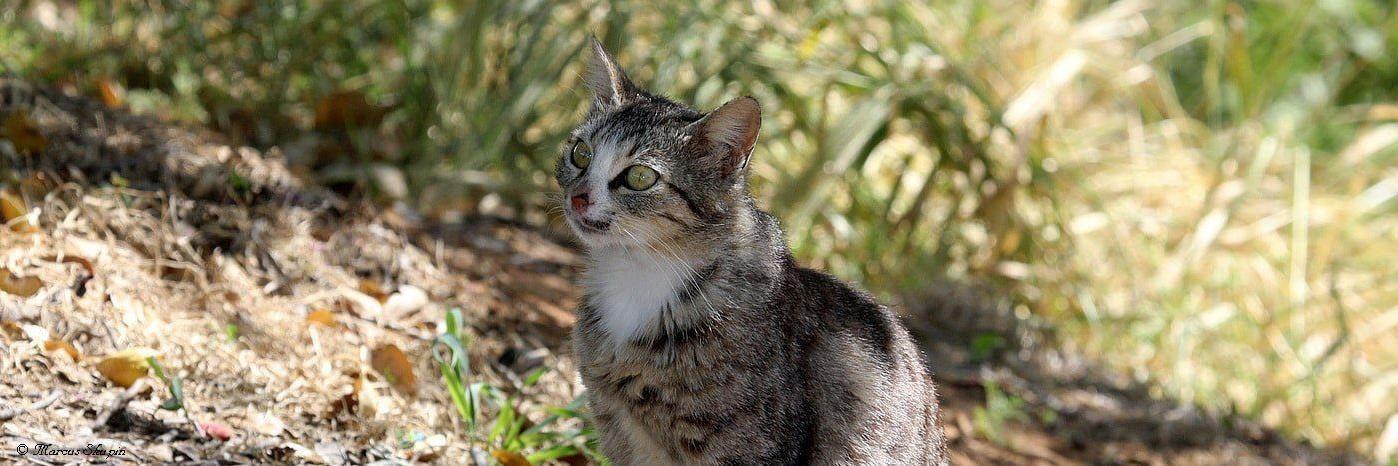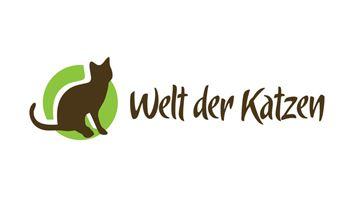Chapter 3
CHAPTER III.
FOOD.
Although the cat is in many respects so hardy an animal as to have the popular reputation of possessing nine lives, we must bear in mind that puss is not of such an iron constitution as to be entirely independent of all care. No animal better repays its owner for the attention rightly bestowed upon it than does the cat. Pussy"s wants are not many, and are very simple indeed. It is the duty of every owner of pet animals first to ascertain the nature and requirements of his charge, and then to use that knowledge with thought and right feeling. Subsequent experience also proves a good teacher, and especially so when it is supported by previous knowledge.
Being normally a purely carnivorous creature, the cat requires to subsist principally upon animal food. But, nevertheless, owing to its long established association with mankind, the domestic cat has acquired a constitutional capacity for subsisting upon a somewhat miscellaneous bill of fare. Consequently, the intestines of the tame cat are said to be slightly longer and somewhat wider than in the wild races the latter requiring a rather less lengthened process in digesting the simple and highly nutritious diet which instinct teaches them to select. But still our puss is, as God created her, a perfect beast of prey. There is no complicated stomach, as in the ox, antelope, sheep, and other ruminants no perfect grinders, like mill-stones, as in the mouth of the horse, elephant, hog, etc. The dentition of the cat, as also that of the lion, leopard, ocelot, lynx, and other Felidæ, is beautifully adapted by the all-wise Creator for holding, tearing, or devouring their living prey. On inspecting the teeth of a cat, the four large, powerful, and sharply pointed canine teeth, or fangs, will naturally attract attention. With these the prey is seized, and is usually carried, or the piercing and fatal bite is effected. It will be noticed, by the way, that a cat, if possible, always carries a mouse or a bird, quite away from the spot where it may have been captured. The attack is, however, made with the claws first, and the cat does not seize with teeth only, as does the dog. At the front, between the tusks, will be seen six small incisors, and back, behind the tusks, on fangs, are the molar and premolar, or crushing teeth. The dentition of the cat is as follows (the letters i, c, p, m signifying incisor, canine, premolar, and molar):
i { 3 3 c { 1 1 p { 3 3 m { 1 1 } 30.
3 3 1 1 2 2 1 1
The milk dentition in the kitten is the same as to number, with the exception of the molars, which are absent, and appear only as permanent teeth. The incisors appear between two and three weeks after birth, and are followed by the canines and molars, which are all cut by the time the kitten has attained the age of six weeks. They are shed, and replaced by the permanent teeth, after the seventh month. Therefore the teeth in a kitten are twenty-six in number. It may be easily noticed that the teeth of the lower jaw bite within those of the upper. The jaws are so articulated as to allow of up-and-down motion only, and accordingly the cats and other carnivora are unable to grind their food by a sideway motion, as we do ourselves, and as is most noticeable in a horse when feeding, but crush and chop the flesh and bones upon which they feed by a jerking motion of the head.
We are all familiar with the rough nature of the tongue - a peculiarity in the cat and all her kind. It is in dressing the exceedingly beautiful and sleek fur that the tongue is of important service, as comb, brush, and sponge in combination.
The domestic cat being almost a purely carnivorous animal, to say the least, requires food of a character congenial to the instincts of her nature. It is difficult to state in measured terms the needful quantity of a cat"s daily allowance. The amount may be regulated by observation, right judgment, and experience. It is not so needful with cats that live in the country, especially at a farm, where mice of different kinds and other small game are plentiful, and a liberal supply of milk, to feed them largely upon meat; but under less favourable circumstances the common house cat often suffers much privation. Where there is a large family, and but one cat or so, there may generally, with a little thought, be odd pieces of various kinds gathered together sufficient to meet pussy"s wants. But in a small household, where limited and strict economy is rightly observed, the poor cat may fare but badly. Under such circumstances, in order to maintain a vigorous, happy, and respectable cat, it will be found needful to buy cats"-meat of some sort. For this purpose boiled horseflesh is commonly supplied, the peculiar call of the cats"-meat man being a well-known sound in our large towns. There is, however, but slight risk of animals fed upon this meat becoming diseased by eating the flesh of unhealthy horses. Horseflesh is to be recommended as convenient and cheap, and cats are also very fond of it. When in a state of putrefaction it is most unwholesome, and if those who buy horseflesh will be a little careful in the selection of it, the horse-slaughterer, or "knacker, will be accordingly regardful of the condition of the meat he supplies.
Bullocks" or sheep"s lights are excellent, especially the latter. These are usually boiled, as they will then keep longer, and when given largely, are better so prepared. But they are good raw, occasionally. Too constant and abundant feeding upon raw lights, or even raw flesh of a more solid kind, especially if not quite fresh and healthy, is liable sometimes to scour the cat. The poor animal, however clean and regular in its habits, may then become offensive in the house. Boiled lights are very unsubstantial, and can be given liberally. Raw meat, however, in moderation, is often good for a cat, especially where there are no mice or other game, and it tends to improve the spirit of the animal.
Cats generally prefer mutton to beef, but they will not touch fat meat, unless they are famished, and it is most unsuitable, and should never be offered. Fish is exceedingly good for a change, and the cat"s love for such light and cooling diet is well known; and as to rabbit or hare, there can be no greater treat. We may also say the same of feathered game.
An adult cat will thrive well with one feed per day, in addition to a little good, pure milk in the morning. To this a little sweet, stale white bread may be added. The rest can be left to chance.
But I may here warn the owner of a pet cat against over-feeding. It is well to be regular as to the time of feeding, for this reason: an animal that is fed at all hours of the day will be always expecting, and always asking and looking in a very expressive manner, and it, of course, receives the attention of its affectionate guardians; whereas, an animal that is regularly fed will enjoy its food with hungry relish, and will not at other times be over-troublesome. Two errors have to be guarded against in the feeding of animals generally, and the cat in particular: careless neglect or grudged attention on the one hand, and, on the other, thoughtless tampering and weak-minded indulgence.
A supply of pure water should be kept within the cat"s reach. Although of by no means a thirsty nature, there are times when water will be sought after, as during very dry and hot weather, or after food of a thirst-producing character; and we never know what a cat may pick up.
Notwithstanding that the generality of cats are very badly attended to, I may here remark that large, strong, high conditioned animals are much benefited by an occasional fast. This remark I make, however, with caution, and rely upon the good sense of the reader.
Be careful never to feed in a stale dish, and always give milk in a well washed saucer or other vessel. Never let what the cat may leave stand about, but dispose of it otherwise. The savour of onion is very distasteful to all cats, and they will often loathe good meat that is strongly seasoned with it.
It may here be observed that the cat is even sometimes of a slightly insectivorous propensity. Young, sportive cats, more especially, have much amusement in playing with cockroaches, and sometimes eat them. But they appear to eat them more from accident or idleness than from desire; much the same as a schoolboy will eat acorns. Occasionally, pussy will be fortunate in catching such rare game as a cricket. Flies are not easily caught, except in a window; and they are said to make cats thin. Beetles, I think, do a cat no harm. Lions and other beasts of prey are known to feed largely upon locusts, which occur in such vast swarms in the great African continent.
It should be observed, respecting milk, that for animals generally, as for ourselves, it is decidedly improved by boiling. Pussy will, therefore, readily partake of bread and milk prepared for the family breakfast or supper. And she will not often refuse a little plain baked rice-pudding, or other simple preparation containing milk as the principal ingredient.

